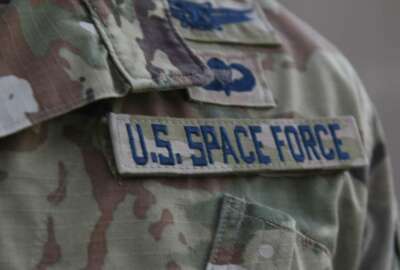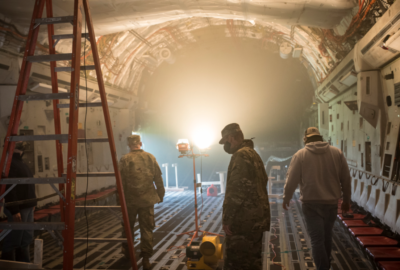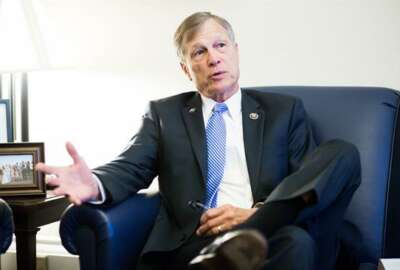
At nearly a year old the Space Force joins the Intelligence Community
The Space Force will be the 18th member of the collection of agencies providing national security information.
On the cusp of turning a year old, the Space Force is being brought into the intelligence community fold and making strides to cement itself as a permanent part of the military.
Chief of Space Operations Gen. Jay Raymond told reporters Tuesday that the service will be 18th member of the intelligence community.
The service is still hashing out the details, but will likely have to submit plans for establishing itself in the community to Congress.
The introduction to the new intelligence arena isn’t the only thing the Space Force has done lately.
The service just graduated its first seven enlisted trainees from basic training.
The Space Force identified 6,400 people from the Air Force who will move to the new service — 2,400 have already made the switch. Additionally, 86 Air Force Academy cadets have been commissioned into the Force.
“We are in the process as we speak of interviewing Air Force Academy cadets for next year’s class,” Raymond said. “This next year, we’ll have 98 cadets that will come over, and we’re interviewing every single person that comes into the Space Force to be very, very selective.”
For officers and enlisted, the Space Force is comprised of six career fields: space operations, cyber operators, acquisition, engineering, cyber and intelligence.
“Because we brought those units underneath the Space Force leadership, now we have to develop those folks to fill those positions and do that organically,” Raymond said. “As new missions come about, we will add squadrons. But from the beginning, we baseline this with the units that were already in the Air Force bringing them over, and then being able to develop the manpower that fills those units today.”
The Space Force also completely revamped the way space professionals are taught. The courses are now conducted at upper security levels.
“The higher classification level gets more after the strategic and the contested strategic environment that they’ll be operating in,” Raymond said. “We’ve built follow-on courses depending on what mission area they are going to go into and we’ve built all those courses as well.”
Raymond said it is key that a service control its own education and training. The service will eventually have its own senior enlisted academy as well.
The Space Force also expects Space Systems Command to be set up early next year. That organization will oversee the acquisition of software and hardware related to space. Some parts of the other services might transfer over to create the new command.
“We’ve designed it in a way as to really enable the delegation of responsibilities down to the experts that do the job,” Raymond said. “We’ve already started doing that. We took something called the head of contracting authority, which was an authority that was held here at the Pentagon. We delegated that down to the experts at the Space and Missile System Center. We want to do more of that, we want to let the program managers manage their programs and not have to manage a bureaucracy.”
Those who are still waiting to find out what members of the Space Force will officially be called and what the service’s song will be will still have to wait; no decisions have been announced yet.
Copyright © 2024 Federal News Network. All rights reserved. This website is not intended for users located within the European Economic Area.
Scott Maucione is a defense reporter for Federal News Network and reports on human capital, workforce and the Defense Department at-large.
Follow @smaucioneWFED






